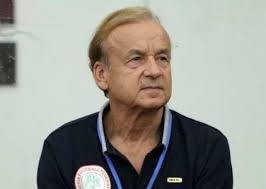September 5, 2020, the Nigerian Communications Commission (NCC), shocked everyone when it announced that it remitted N362.34 billion into the Federal Government Consolidate Revenue Fund (CRF), from 2015 to date.
The Executive Vice Chairman, Prof. Umar Danbatta, has proven critics of his reappointment wrong. His mandate to steer the ship of NCC to a safe shore in the industry is one of the wisest decisions of the President Buhari’s administration. With wisdom, he has tackled the challenges faced by the Commission in times past.
Under him, problems such as high cost of Right of Way, RoW, hampering network development, multiple taxation, health concerns relating to the siting of telecommunication towers near residential areas, improvising to cope with poor public electricity supply and others are being tackled successfully by an highly cerebral team put together by the Erudite Engineer, Astute Administrator, Philanthropist, and an Outstanding Nation Builder per Excellence.
He has proven that the Commission has a strong will to continue to protect consumers and ensure they have value for their money. The Commission supports and fast-track the digital economy drive of the Federal Government and this has led to the creation of a Digital Economy Department in the Commission.
Prof Umar Danbatta had a speedy and unanimous reappointment by President Muhammadu Buhari, after he was also confirmed by the Senate as the Executive Vice-Chairman and CEO of the Nigerian Telecommunications Commission, NCC on a second term in office.
After his appointment as the Executive Vice Chairman of the Nigerian Communications Commission (NCC)) in August 2015, he has tremendously transformed the Telecom Sector in the areas of Staff Welfare, Infrastructural Development, Consumer’s Empowerment and Satisfaction, Job Creation, Standard Information and Communication Technology Revolution, Research, Rebranding of the Telecom Sector, Cordial Relationship with Stakeholders, Increase in Active Mobile Broadband Penetration, Efficient Monitoring and Value Driven usage for the provision of Different Types of Services.
His reappointment were mere pointers to the Federal Government’s satisfaction over his first term and approval for him and his team to continue pushing the frontiers in the development of our telecoms sector and digital economy.
So, it was no surprise when Danbatta, who spoke at an interactive session on Friday in Abuja, said that the revenue was realised through spectrum fees and operating surplus, which he noted helped to boost the revenue generation drive of the present administration.
Apparently, the team he has built since August 4, 2015, they consolidated on the past five years, a period in the world where digital communication has gone even more digital. Data took the centre-stage. Industry operators have struggled with worldwide trends to ensure we are not left too far behind.
Under his watch, NCC has collaborated with academics to support the development of the innovative services and life-changing solutions with the use of information and communications technologies to promote indigenous content.
During a conference, where he chronicled the recent achievement, Danbatta was quoted saying, “The Commission has so far released N336.4 million as research grants to the academia and has endowed professional chairs in two Nigerian universities. “More importantly, we have empowered the Nigerian youth by promoting their ingenuity and innovation in the development of locally-relevant technology solutions. “ The latest of such was the 2020 NCC Virtual Hackathon, where we gave N9 million in grant to three top promising tech startups for solutions, aimed at addressing the impact of COVID-19 and diseases in thematic areas of health, community, productivity, economy and transportation.’’
Danbatta said that the broadband penetration in 2015, when he first assumed office as Executive Vice Chairman, was six per cent.
The News Agency of Nigeria (NAN), recalls that when Danbatta first tenure ended, he was reappointed in June and confirmed by the Senate on July 21. According to Danbatta, the broadband penetration as at July is 42 per cent.
“This achievement is as a result of key policy initiatives to improve broadband penetration embarked upon by the Commission. “These include increasing the number of licenced infrastructure companies (InfraCo), to six across the geo-political zones,’’ among others. Danbatta said that the Commission was currently finalising six InfraCo counterpart funding agreements to ensure the full rollout of broadband infrastructure on an Open Access Model. He said that this would ensure there was Point of Access in all the 774 local government areas in the country.
The Executive Vice chairman said that the drive to boost broadband penetration yielded fruit as the subscribers’ base stood at 199.31 million as at June. Danbatta also said that teledensity rose to 104.41 while the sector contributed 14.2 per cent to the GDP in the second quarter.
Speaking on his plans for the next five years, Danbatta said that he hopes to deepen the broadband penetration drive.
Taking the broadband penetration to 70 per cent to at least 90 per cent of the population by 2025 in line with new target in the National Broadband Plan (NBBP), 2020-2025 will be an amazing improvement.
Olamide Adeniji is a member of the Editorial Board of TheScript Newspaper.




